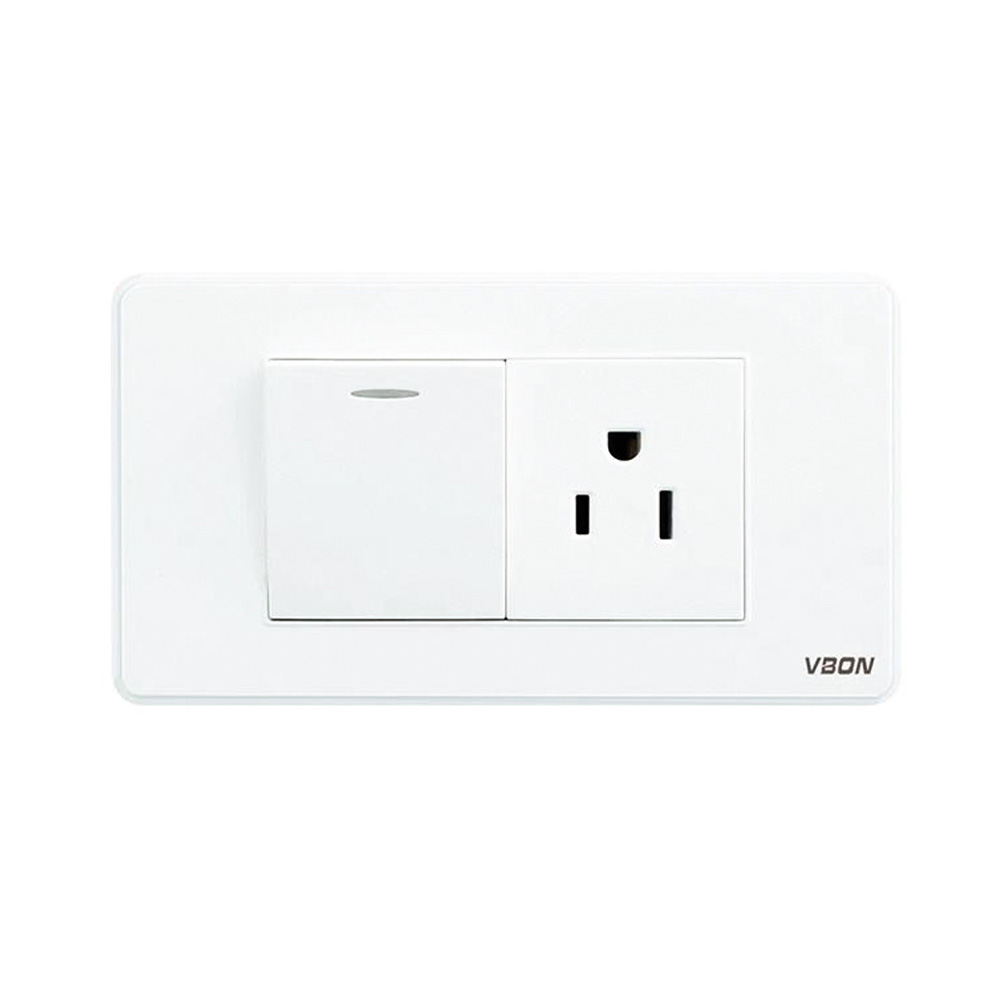In recent years, the Middle East has seen significant strides in both residential and commercial development, largely driven by rapid urbanization and increasing demand for modern amenities. While the region is quickly embracing smart home technologies, a substantial portion of the market continues to rely on traditional, non-smart wall socket switches for everyday functionality. These non-smart switches, often overlooked in the midst of the smart technology craze, are essential components of electrical systems in homes and businesses, providing reliable and simple solutions for controlling electrical devices and ensuring safety.
In doing so, we will look at key trends in the market, factors influencing consumer choices, and the role of non-smart switches in supporting the region’s infrastructure growth.
The Timeless Value of Non-Smart Wall Socket Switches
While smart home technology has garnered attention in recent years, there remains a strong demand for non-smart wall socket switches. These traditional devices, though simple in design, are often the practical and affordable solution for households, commercial buildings, and industries that do not require advanced automation or remote control features. Non-smart switches are seen as a reliable, straightforward means of controlling electricity, with no need for complex setups or reliance on internet connectivity.

In the Middle East, many households, especially in more traditional settings, continue to use non-smart wall socket switches. For example, in regions where internet access may be limited or unreliable, consumers prefer the simplicity and reliability of a non-smart switch. Additionally, these switches are favored in rental properties, older homes, and smaller businesses where there is little need for automation, and where the upfront costs of smart switches may not justify the benefits.
Durability and Reliability: Key Considerations for Non-Smart Wall Socket Switches
In a region known for its temperatures, durability and reliability are key considerations when it comes to selecting electrical components such as wall socket switches. Non-smart switches have long been favored for their robustness, ability to withstand harsh environments, and simple construction that ensures longevity and consistent performance.
For example, in the UAE, Saudi Arabia, and other parts of the Middle East, where temperatures regularly exceed 40°C, electrical components must be able to endure high heat and humidity. Non-smart wall socket switches, often made from durable materials such as high-grade plastic or metal, are designed to resist wear and tear, providing dependable operation in residential and commercial environments. These switches are built to function reliably for many years, ensuring that they meet the needs of both homeowners and businesses without the need for frequent repairs or replacements.
Cost-Effectiveness and Accessibility in the Middle East Market
One of the main driving factors behind the continued use of non-smart wall socket switches is their affordability. While smart switches can be expensive to install, requiring additional infrastructure and technical expertise, non-smart switches are far more cost-effective. This is particularly important in developing areas and for families or businesses that need to maintain their electrical systems within a tight budget.
In the Middle East, where affordability is a key consideration for many consumers, non-smart switches remain the go-to solution for homeowners and small businesses alike. They are available in a wide range of price points, with options to fit any budget. This makes them accessible to a large portion of the population, including those in middle-income households or rental properties where high-tech smart solutions may not be feasible.
Moreover, the simplicity of non-smart switches means that installation is quick and straightforward, requiring minimal labor costs. This contributes to their widespread use across both residential and commercial sectors, where fast, cost-effective solutions are often prioritized.
Design Trends: Aesthetic Appeal of Non-Smart Wall Socket Switches
In addition to functionality and affordability, the design of non-smart wall socket switches has evolved significantly in recent years. As home and commercial design trends shift toward sleek, minimalist aesthetics, traditional switches have adapted to complement modern interiors.



 عربى
عربى